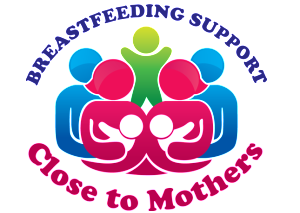August 1-7, 2013 is World Breastfeeding Week! The theme this year is Breastfeeding Support: Close to Mothers
To celebrate, I will be sharing breastfeeding stories from different folks who were brave enough to share their adventures. Several of these stories have impacted my own breastfeeding journey.
No story stands alone
I would pretty much guarantee that if you’re a parent…you’ve heard at least one breastfeeding story. Was it a positive account or a nightmare? Did it make you laugh or cry? How did that story affect your decision to breastfeed or no to breastfeed?
Our stories become a web, each story influencing another, and another. We are all intertwined.
From our first time witnessing breastfeeding to the grandmother telling her grandchildren how she nursed their mother or father, it all impacts our perceptions and decisions.
My Story:
My breastfeeding story began long before the birth of my first child. It began the 1st time I witnessed a friend breastfeed. As an only child, I never watched a sibling nurse and I really don’t recall any exposure to breastfeeding before that day. I was 19 and in aw at her strength and perseverance as she nursed her son and continued to do so even after she returned to work and school. Her story enlightened me to new possibilities.
About 10 years later, I sat in the hospital room with another friend as she struggled to help her daughter to latch. She tried so hard to breastfeed that precious baby, but without proper support, her stress became too great and she made the decision to transition to formula. It was heartbreaking to watch her suffer so greatly and later second-guess her decision to wean. Her story inspired me to learn and now counsel others.
While I was for the preparing for the birth of my first child, I decided to learn as much as I could about this breastfeeding gig I was getting myself into.
As an adaptive mom, I wasn’t sure I’d even be able to figure things out one handed, but I wanted to try. I had fears of having of one huge boob and one tiny one if I were only able to nurse on one side. I took the breastfeeding course at the hospital and asked for a lactation consultant in my birth plan. I was determined to try.
Day one: C-section, puking, chills, pain, more puking, and a lot of separation from my daughter. Not the best start, but I had a friend familiar with breastfeeding at my side and between heaves; she’d help me get my daughter to my breast. Luckily, my daughter was a born Hoover and took to nursing quickly. The lactation consultant gave us the thumbs up and went on her way.
Day two: Shower, Physical therapy, visitors, and cracks! This time the lactation consultant gave me these bizarre bowl looking things with holes in them and instructed me to place them over my nipples between feedings to allow air to circulate (somehow this should be possible through the globs of lanolin I was also using) and heal the cracks.
Day three: Milk came in with a vengeance cracks and all!
Night shift day three into day four: Those bizarre bowl like things “airing out” my boobs didn’t allow all of my milk ducts to drain causing blockages on both sides…and a very hungry and fussy baby.
Fortunately, I had the most amazing nurse that evening. She shared her story with me of her personal experience with blockages then dashed off to find a pump and some warm compresses. She stayed with me the entire night and even checked on me after her shift was over. If it had not been for her empathy and support, my breastfeeding relationship with my daughter might have ended before I ever left the hospital. Her story encouraged me to fight and continue breastfeeding.
The cracks and discomfort continued for about 2 months until my daughter corrected the latch herself…yes, I was positioning her to latch incorrectly all that time. Once I got out of the way and allowed her to do what she was born knowing how to do…no more pain.
We nursed for about 15 months when she just seemed to lose interest and I chose not to push the issue. My goals were met.
Things got off to a smoother start with my son. Live and learn, right?
However, we received a lot of pressure from the hospital to give him formula to help flush his system and lower his bilirubin levels. Both of my babies suffered with jaundice, as many babies do, and this was the first I’d heard of using formula as a “treatment”. His levels continued to rise and they had to place him under the lights. In order for my son to spend adequate time under the lights, I had to pump and was only allowed to nurse him every 3-4 hours. I pumped all I could, but in the end caved and gave him the formula mixed with my milk. This decision was traumatic for this lactivist mother to say the least, but again I was blessed with an amazing nurse who’d been in similar shoes and she helped me through the long night without my son. Her story kept me sane and showed me that I was not alone.
I continued to nurse my son (11 months and counting) and he had no difficulty transitioning back to exclusive breastfeeding after that night.
We still hit bumps in the road from time to time, but I’ve found an excellent support system and I hope to continue to breastfeed until my son is ready to wean.
So that’s my story in a nutshell.
It’s all about exposure (pun intended). By sharing our stories and experiences, we can help others set and reach their own breastfeeding goals, then their stories will in turn influence and inspire others and so on…a chain reaction, of sorts.
So check back each day this week as I share new and inspiring stories. Hopefully, some of these stories will empower you or someone you share them with.
If you have a story you’d like to share, please go to https://www.facebook.com/AdaptiveMom and leave it for me in a message by August, 6 2013. After that date, feel free to share your own stories in the comments below. Thanks!


